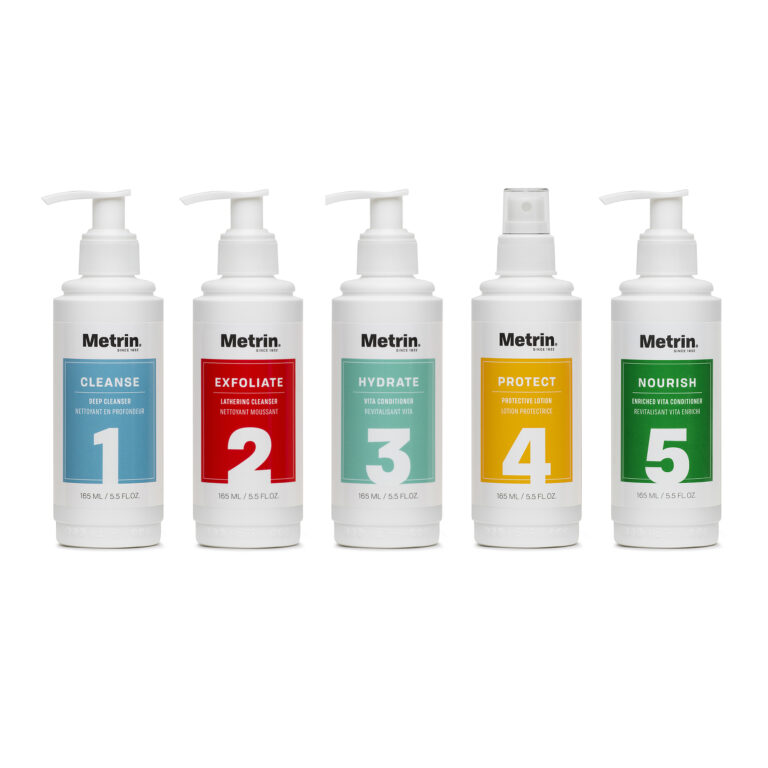5 BEST SKIN NOURISING INGREDIENTS
Vitamins are necessary for your health, but can they also help to make your skin look better? Of course, they can. But what are the 5 best skin nourishing ingredients?
Firstly, let’s talk about the internal body versus the skin. The skin is the largest organ of the body, but unlike internal organs within the body, how the skin responds to vitamins are different. Often, how the vitamins affect (organs within) the body are confused with how the vitamins affect the skin.
Dietary Consumption of Vitamins
Symptoms of dietary deficiency and imbalance in nutrition in the body can show up as a symptom on your skin, precisely because vitamins play such an important role in maintaining healthy skin. For example, if you are experiencing dietary Vitamin A deficiency, you may get rough, dry or scaly skin, and negatively affect pregnancies. However, over-consumption can lead to toxicity. If you are experiencing dietary Vitamin A toxicity or ‘Hypervitaminosis A’ the excess Vitamin A typically builds up in your body over a long period of time and symptoms can include vision issues, bone pain, and skin changes.
Consuming a balanced number of vitamins is important for your overall health, as well as the health of your skin. A vitamin-rich diet as well as taking oral vitamin supplements, when needed, are steps towards a healthier you, including your skin! The important thing to remember is to maintain a healthy balance in the foods and supplements you consume.
Topical Application of Vitamins
Although the skin is the largest organ of your body, its primary function is to act as a protective barrier and does not function in a manner like internal organs. As such, other than varying degrees of skin irritation from excess application of an ingredient, usage of vitamins through topical applications using properly formulated skin care products are less problematic and can benefit the skin tremendously.

However, this is only when such nourishment is delivered in a properly formulated skin care product, in the right skin care sequence or routine where the use of such products are designed to work together and create a synergy.
Adding nutrients to the skin this way will guarantee quicker and more noticeable results.
So, which vitamins are best for the skin?
The Top 5
There are five vitamins that top the list when it comes to skin care, and they’re as easy to remember as A, B, C, D and E!
1. The first, Vitamin A, helps to reduce wrinkles and dark spots. It works by promoting cell turnover and collagen production as well as helping the middle layer of the skin to retain moisture. Vitamin A is also an important component in the treatment of severe acne.
2. Next comes Vitamin B-complex which includes vitamins B3, B5, and B6. Vitamin B3 is used to improve hydration and reduce redness in skin. It works by increasing your skin’s outer protective barrier of fatty acids. Vitamin B5 works as a humectant to retain moisture which improves softness and elasticity. Meanwhile, Vitamin B6 helps to reduce acne by preventing your body from producing too much of an oily substance called sebum.
3. Vitamin C has antioxidant properties and is considered an all-round anti-ager. It helps to get rid of free radicals that cause wrinkling and sagging and is responsible for the regulation of collagen, a protein that brings skin its firmness and suppleness.
4. An often-overlooked vitamin when it comes to skin care is Vitamin D. Most people think of Vitamin D when it comes to bone health because it helps in calcium absorption, but this vitamin is also extremely effective in treating skin problems such as psoriasis. Excellent at boosting elasticity, Vitamin D promotes stronger skin by giving underlying support to the outermost layer of skin.
5. Finally, Vitamin E is the skin’s protector. It helps the skin to retain its natural moisturizers and it is a powerful antioxidant. Antioxidants help neutralize damaging free radicals that cause cellular damage. Because it helps prevent damage, Vitamin E is also known to help prevent pregnancy stretch marks as well as helping to prevent premature aging of your skin.
Where to Find the Goods
Vitamin A derivatives are often called retinoids. When looking at product’s ingredients, watch for that word as well as retinol and retinyl. Retinoids are very common in hydrating night creams and lotions. Aloe Vera is also an ingredient rich in Vitamin A.
Vitamin B-complex is found in many lotions, creams, and serums for its variety of healing, protective, and moisturizing properties. Niacin or Niacinamide is the name given to Vitamin B3 on product labels, Panthenol is Vitamin B5, and Vitamin B6 appears as Pyridoxine.
Vitamin C is often present in moisturizers specifically formulated to keep it stable. As Vitamin C can oxidize easily and lose its potency and products that feature high potency may not be as effective unless Vitamin C is protected from oxidation by encapsulation into a lipospheric form or delivered through antioxidant rich carrier oils like the high oleic sunflower seed oil (also naturally rich in Vitamin E). Aloe Vera as a natural ingredient is also a good source of Vitamin A, C and E.
If you see Ergocalciferol on a label, this is Vitamin D, the skin-strengthening vitamin. By working to repair connective tissue, Vitamin D boosts skin’s elasticity in the middle layer to reduce the look of fine lines or thinning skin on the surface. Sunflower seed oil is also rich in Vitamin D precursors and metabolites, helping the skin receive Vitamin D when applied topically within skin care products formulated with sunflower seed oil.
Naturally derived from Vitamin E, Tocopherol forms a barrier against moisture evaporation on the skin. That’s why the naturally occurring antioxidant Vitamin E is regarded as a superstar in the treatment of damaged skin, especially sun-damaged skin. In one teaspoon of sunflower seed oil, about 6.1 milligrams or 40% of the daily recommendation dietary allowance of vitamin E. The sunflower seed oil is also known to prevent skin infections of premature infants with weakened immune system. The use of sunflower seed oil (cold pressed, high oleic, certified organic version is the best) in skin care products is an excellent way to receive the benefits of Vitamin E.
Keep in mind that not all labels will contain vitamins listed individually. Since many plant-sourced ingredients naturally contain a variety of vitamins, make sure not to overlook valuable botanicals, herbs, or plant oils in a product. For example, avocado oil, aloe vera, calendula oil, chamomile, pumpkin seed oil, sea buckthorn oil, safflower oil, and sunflower oil all naturally contain skin-loving vitamins.
Vitamins for Best Skin Care Results
Everything starts with properly cleansed skin! Without effective double cleansing of the face your skin, dead skin cells, excess bacteria and sebum and atmospheric dirt including make-up residue on the skin surface can interfere with any topical vitamins or moisturizers you apply to your face.
For best results apply products with naturally vitamin-rich ingredients as well as added vitamins within the formula to skin. Direct application of vitamins in oil form, such as pure Vitamin E oil, can be done, but it can be greasy, difficult to apply and may not be in the skin friendly pH range (skin has a natural, protective acid mantle). Also, oils should be in the right emulsion (mixture) with water to provide the hydration – moisturization – only life giving water can provide to the skin.
Some vitamins can also be irritating to the skin in high concentrations. For example, trying to apply Vitamin C to your skin by rubbing a lemon on it can actually burn the skin due to its high acidity. Also, creams with high levels of extracted Vitamin A should be used at night since they may cause adverse skin reaction when exposed to sunlight. Choosing the right form of Vitamin A can make a big difference.
Lotions, creams, and serums containing the right levels of Vitamins A, B, C, D, and E can be used each morning and evening to promote consistently nourished, healthy skin. To be effective and gentle, these nourishing ingredients should be delivered in a layered manner and repeated twice daily – and all skin care products used should be known, if not specifically designed and proven, to work with each other in a productive, synergistic manner.







